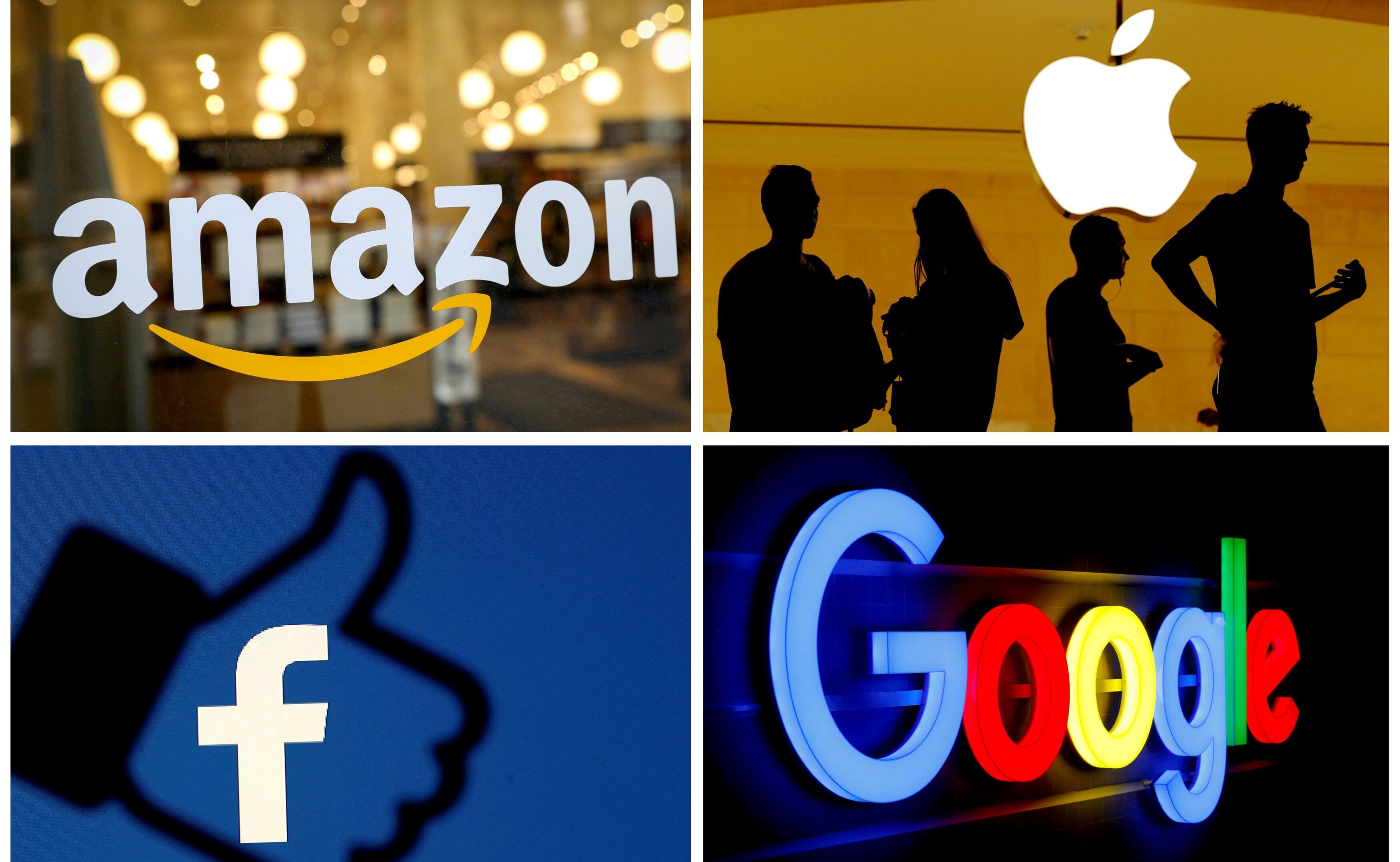From Friday, a host of internet giants will face new obligations in the EU to protect users and their data.
Big Tech Braces For Roll-Out Of EU's Digital Services Act
From Friday, a host of internet giants will face new obligations in the EU to protect users and their data.

More than a dozen of the world's biggest tech companies face unprecedented legal scrutiny, as the European Union's sweeping Digital Services Act (DSA) imposes new rules on content moderation, user privacy and transparency.
From Friday, a host of internet giants – including Meta's Facebook and Instagram platforms, Apple's online App Store, and a handful of Google services – will face new obligations in the EU, including preventing harmful content from spreading, banning or limiting certain user-targeting practices, and sharing some internal data with regulators and associated researchers.
The EU is seen as the global leader in tech regulation, with more wide-ranging pieces of legislation – such as the Digital Markets Act and the AI Act – on the way. The bloc's success in implementing such laws will influence the introduction of similar rules around the world.
But researchers have raised questions over whether these companies have done enough to meet lawmakers' expectations.
For now, the rules only apply to 19 of the largest online platforms, those with more than 45 million users in the EU. From mid-February, however, they will apply to a variety of online platforms, regardless of size.
Any firm found in breach of the DSA faces a fine worth up to 6% of its global turnover, and repeat offenders may be banned from operating in Europe altogether.
Reuters asked each company designated under the DSA to discuss changes they had made. Most pointed to public blog posts on the matter, declining to comment further, or did not respond at all.
Two of the companies singled out for early regulation – e-commerce giant Amazon and German fashion retailer Zalando – are currently challenging their inclusion on the list in court.
"We can expect that platforms will fight tooth and nail to defend their practices," said Kingsley Hayes, head of data and privacy litigation at law firm Keller Postman. "Especially when new compliance rules encroach on their core business models."
STRESS TESTS
Over the past few months, the European Commission said it had offered to conduct DSA "stress tests" with the 19 platforms.
Such tests assessed whether these platforms could "detect, address and mitigate systemic risks, such as disinformation," a Commission spokesperson said.
At least five platforms have participated in such tests -- Facebook, Instagram, Twitter, TikTok and Snapchat. In each case, the Commission said more work was needed to prepare for the DSA.
Now, just as the rules come into effect, research published on Thursday by nonprofit Eko shows Facebook was still approving online ads containing harmful content.
The organization submitted 13 ads containing harmful content for approval, including one inciting violence against immigrants and another calling for the assassination of a prominent Member of the European Parliament (MEP).
Eko said Facebook approved eight of the submitted ads within 24 hours and rejected five. Researchers removed the ads before they were published, so no Facebook users saw them.
In response to the Eko research, Meta said, "This report was based on a very small sample of ads and is not representative of the number of ads we review daily across the world."
This year Global Witness, another nonprofit, claimed Facebook, TikTok and Google's YouTube had all approved ads inciting violence against the LGBT (lesbian, gay, bisexual and transgender) community in Ireland.
Responding to the Global Witness research, both Meta and TikTok said at the time that hate speech had no place on their platforms, and that they regularly review and improve their procedures. Google did not respond to a request for comment.
TRICKY BUSINESS
While none of the designated companies have said they will disobey the DSA, Amazon and Zalando have disputed their inclusion on the list.
In July, Amazon filed a legal challenge with the Luxembourg-based General Court, Europe's second highest, arguing that bigger rivals in these countries had not been designated.
It has still introduced a number of new features as part of its DSA compliance programme, such as a new channel for users to report incorrect product information.
Fashion retailer Zalando launched a similar legal challenge, arguing that because only 31 million monthly active users bought from third-party sellers on its platform, it fell below the 45 million user threshold.
It will soon become obvious if any of the designated companies had "skirted their legal responsibilities," said Hayes. "Ironing these obligations out will be a tricky business for any platform with a large user base."
(Reporting by Martin Coulter; editing by Josie Kao)
Thanks for signing up to Minutehack alerts.
Brilliant editorials heading your way soon.
Okay, Thanks!

